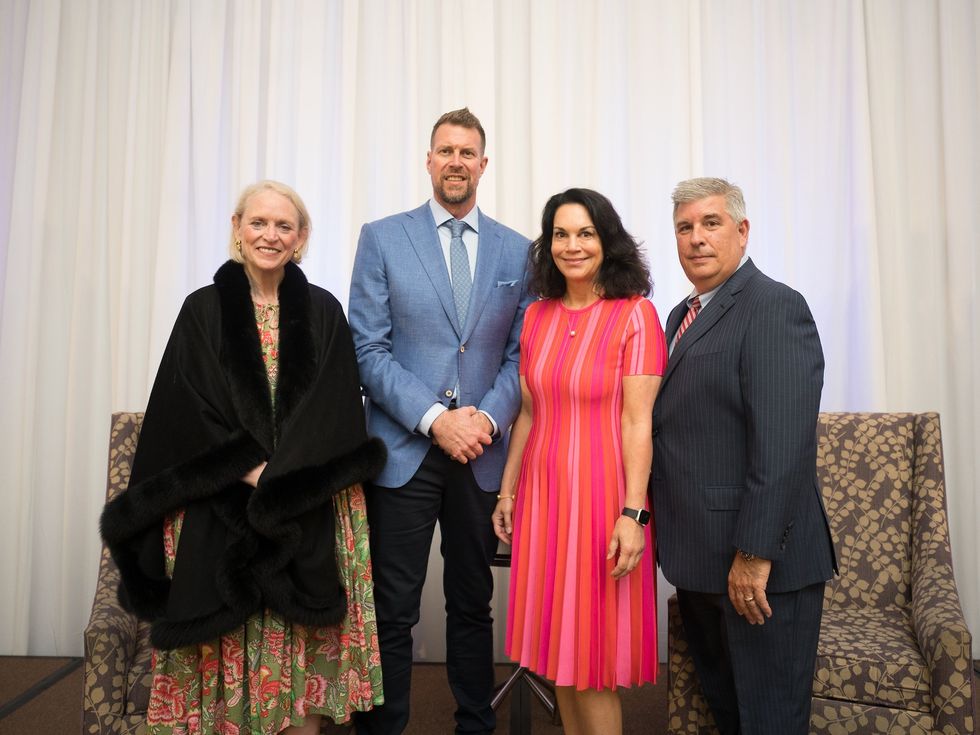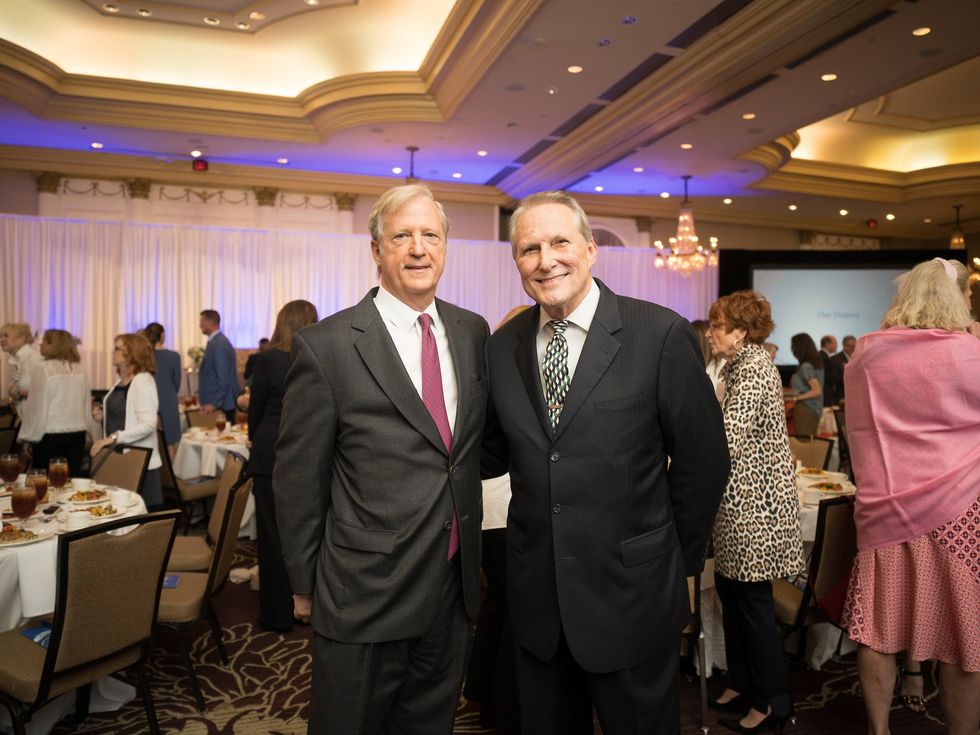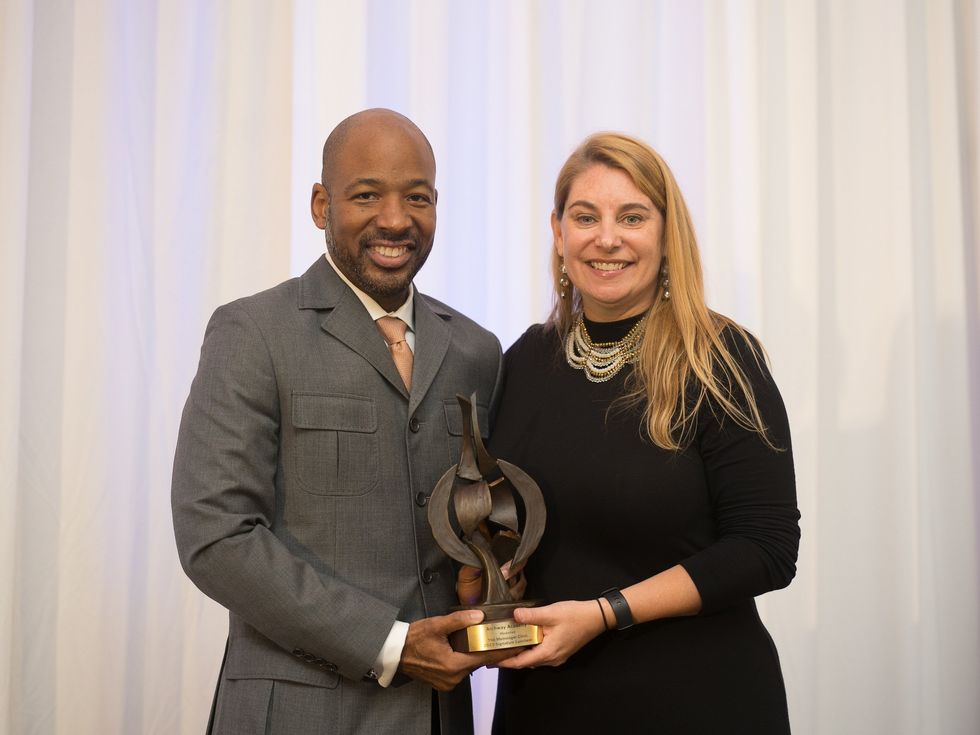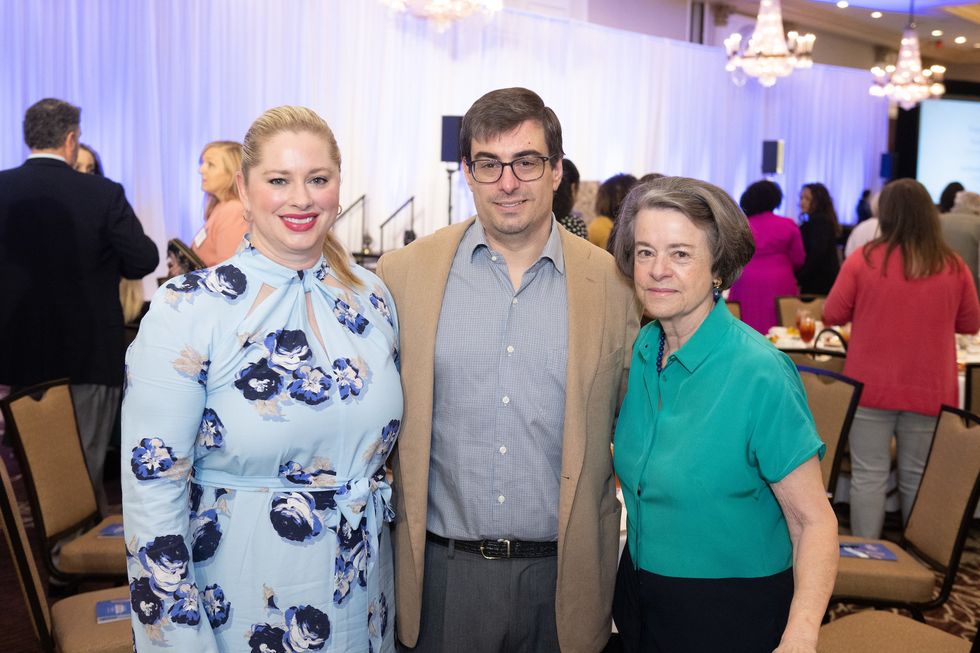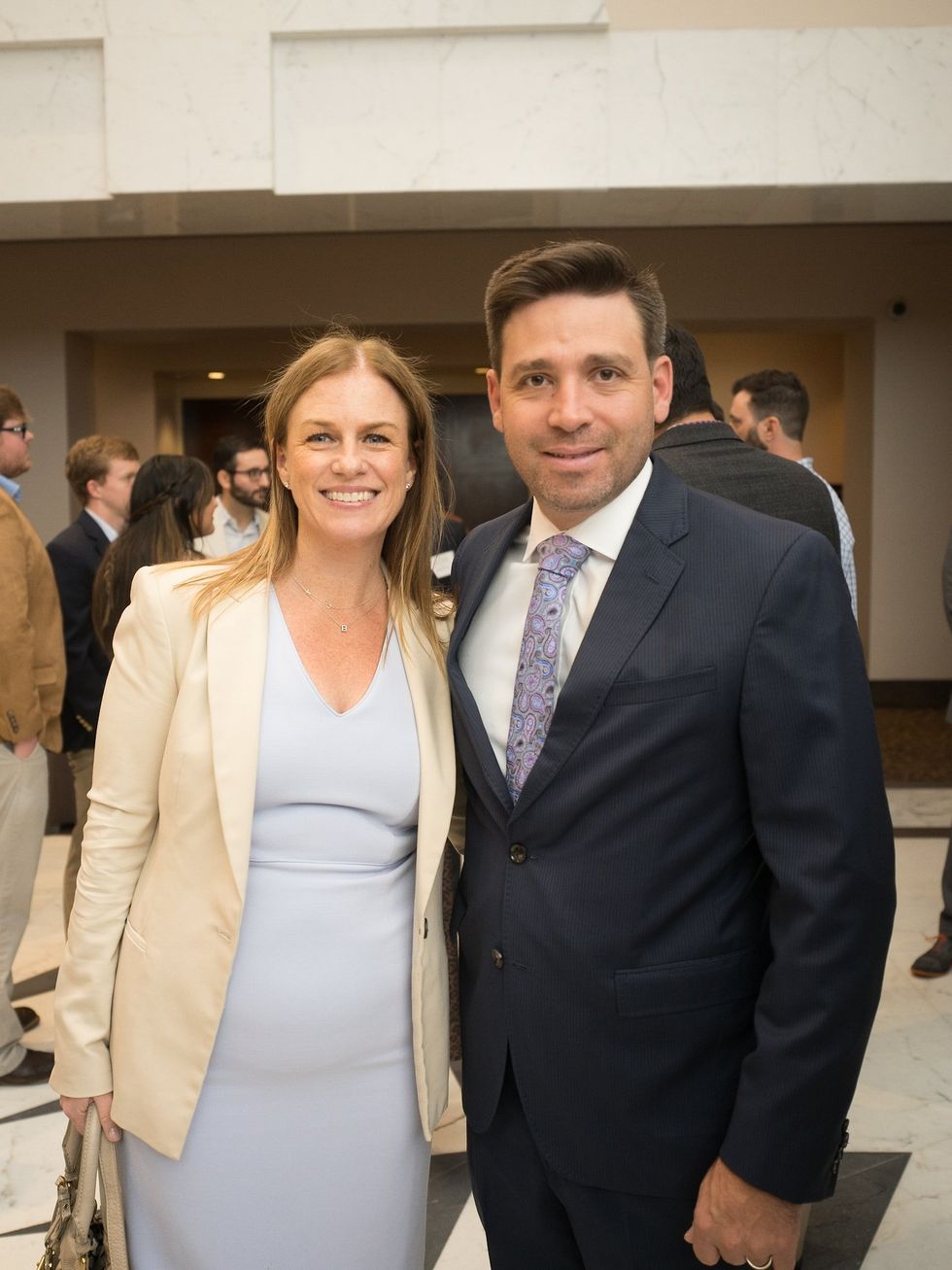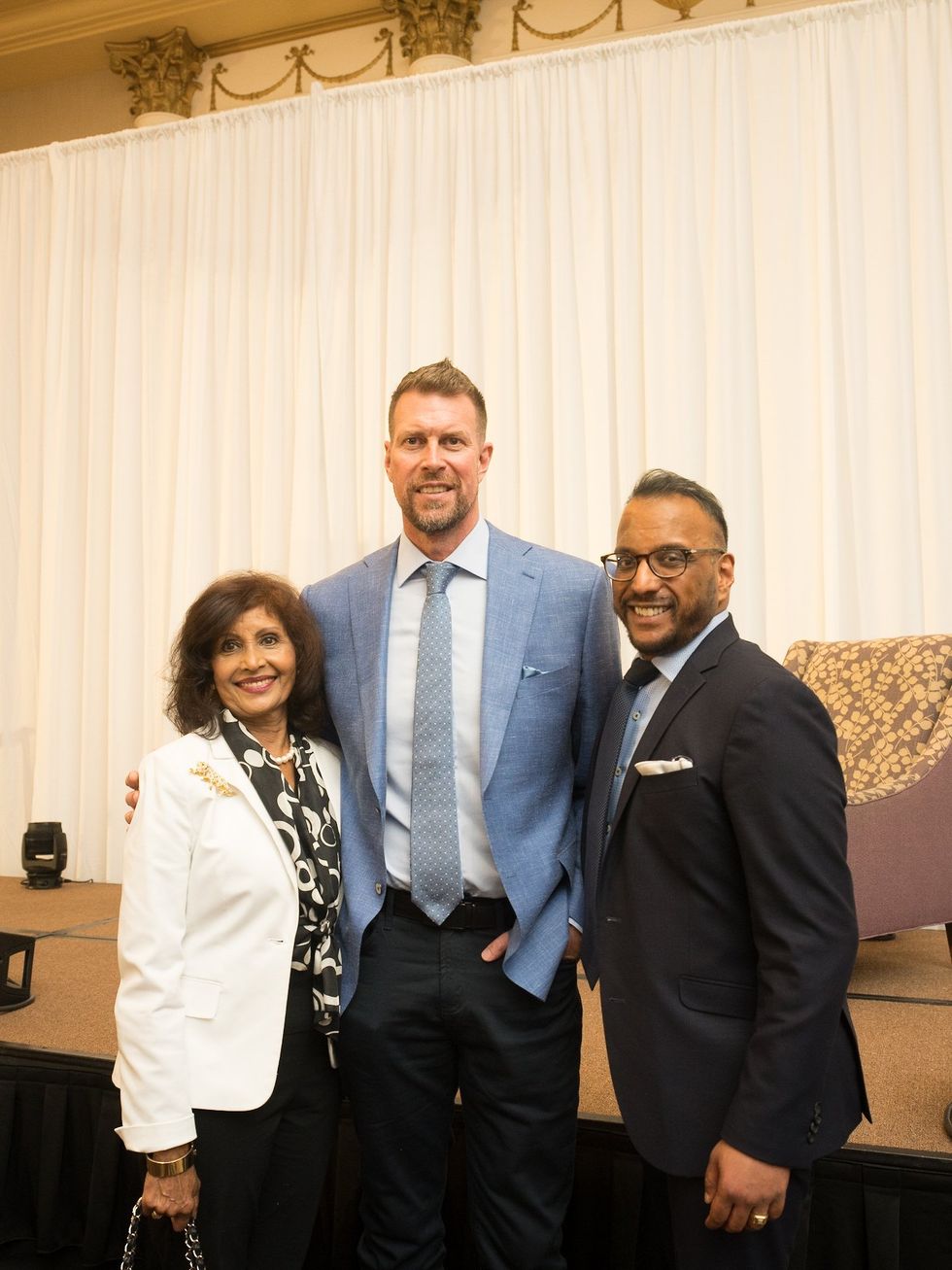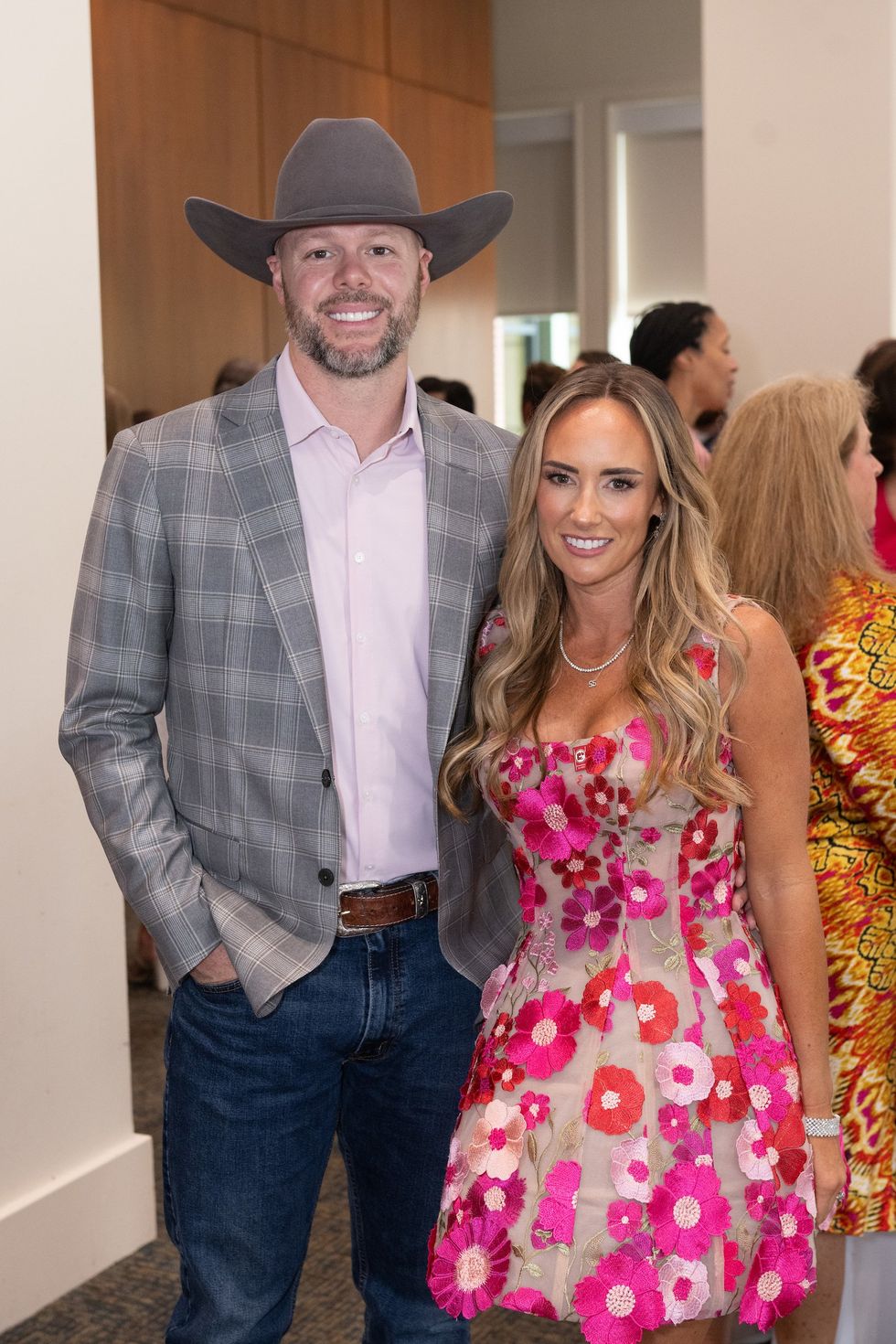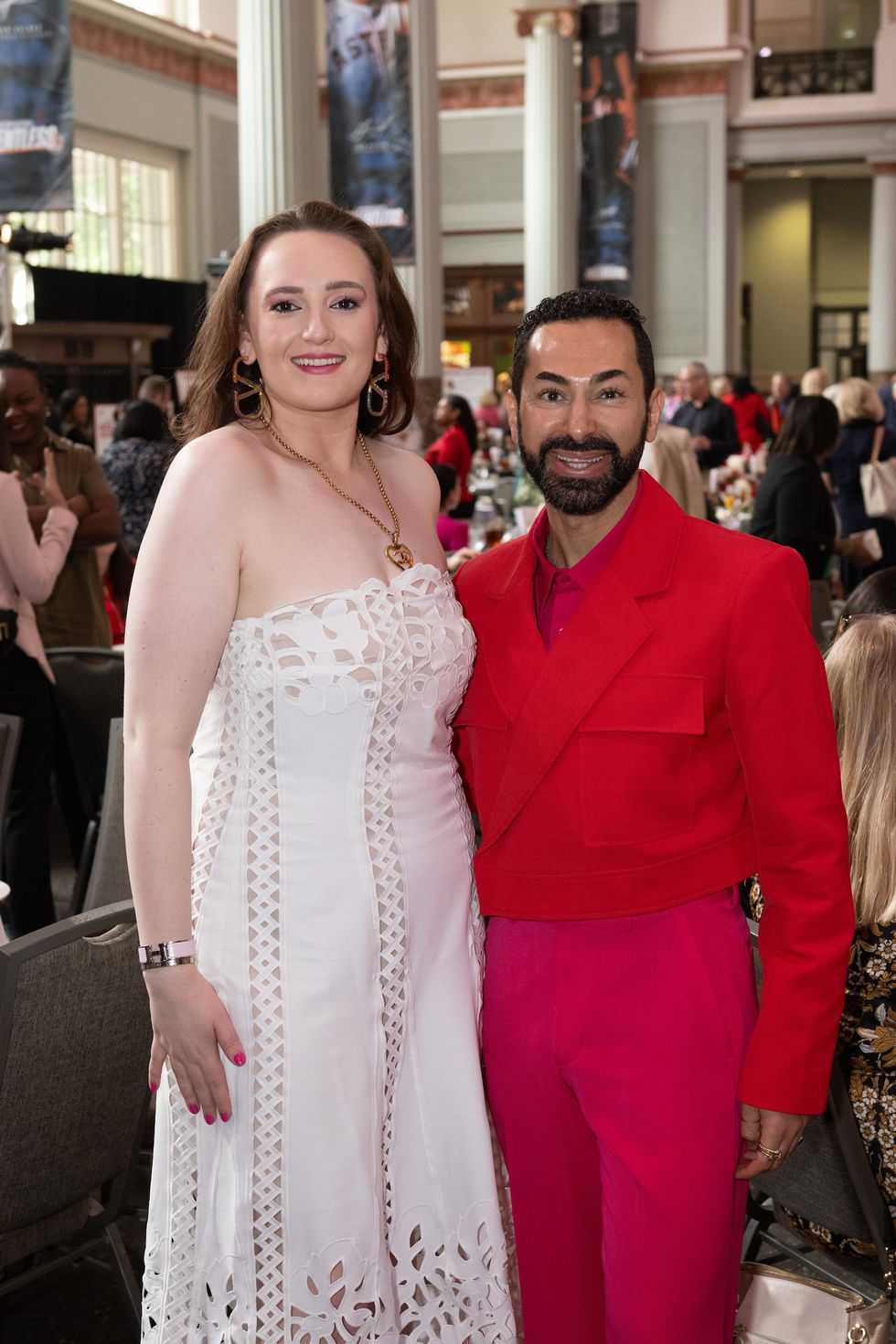a new leaf
Former NFL QB Ryan Leaf reveals riveting story of his fall from grace and recovery at Menninger Annual Luncheon

In a sports town like Houston — where victory is celebrated and champions revered — how is being a champion defined? Is it how many rings a player earns? Is it who gets named MVP? Who hoists the most trophies?
Or, is it the one who perseveres against overwhelming odds? Perhaps the one who confronts demons and slays them — not publicly, but privately — day after day. The one who goes from rock bottom to a place of security and finally, peace.
This is a story about how to fail.
It’s the story of Ryan Leaf, who appeared in conversation with CultureMap's editor Steven Devadanam at the Menninger Clinic Annual Luncheon in a nod to Mental Health Awareness Month. The luncheon, chaired by Susie Peake and Poppi Massey, raised more than $375,000 to help establish a new Center for Addiction Medicine and Recovery at the Menninger Clinic.
The golden boy with a secret
From his earliest days in Great Falls, Montana — what he called a “cowboy town,” Leaf was a gifted athlete gushing with potential star power. “I was placed on a pedestal pretty early,” he said of his junior high and high school sports days. But young Leaf eschewed the quiet cowboy mentality that permeated the area.
“My heroes weren't what the very conservative Montana establishment wanted,” he explained to Devadanam. “My heroes were the Fab Five from Michigan [the iconic college basketball champions] — wearing your shorts down to your knees, the black socks, I had my head shaved.”
That bad boy, urban hoops vibe didn’t jibe with Montana’s cowboy culture, and locals let Leaf know. “They wanted a great athlete and instead they got me,” he said pointedly. His way to get back, he recalled, was to play with rage, win, become a pro athlete, “and rub it in their faces,” he recalled. Since they didn’t approve of his aggressive play and image, “that meant I was a bad person,” said Leaf, “ because of the way they treated me.”
Leaf recalled feeling superior to everyone around him. He didn’t drink at parties, instead lugging around a six pack of 7-Up, to let the drinkers know he was better than them and would never end up like them. He refused to even date anyone who attended his same school.
Admittedly, Leaf towed the fine line “between elite athlete and as*hole,” he said, garnering a big laugh from the audience, before being firmly entrenched in the latter category. But that cocky swagger — a defense mechanism — belied the quiet young man who just wanted to make his father, a Viet Nam war veteran, business owner, and sports lover, proud.
When Devadanam noted his surprise that Leaf wasn't the big man on campus in high school, Leaf explained the dichotomy of his personas. The young introvert Leaf was “an extreme extrovert” on the football field and basketball court. “I tell people all the time that I was a drug addict long before I ever took a drug, in how I behaved,” he noted.
“I was an egomaniac with a self-esteem problem,” he recounted. “And that stemmed from being shamed” — mostly by his mother. Mrs. Leaf, he noted, was worried about her son’s public image and how he was perceived, the victim of an alcoholic father herself. And she saw her father’s traits in her son. “I never felt I could be who I truly was,” Leaf recalled of her treatment.
That meant Leaf poured himself into sports and little else, learning no life coping skills. “I think my development was arrested probably when I was around 13 years old,” he said of the coddling and pedestal he was placed upon as a “golden arm” athlete. While keeping his innate sense of shame a secret, he won on every level in sports, which kept the demons at bay.
“We always do whatever we can — whether that’s a negative and toxic way of doing things — if you’re successful. But what happens if you fail at the biggest possible level?”
A Montana kid makes history
Aggressively recruited by the biggest football schools in the nation, Leaf joined the Washington State Cougars and led them to their first Pac-10 championship in school history. His strong showing in the 1998 Rose Bowl made him the first Heisman Trophy finalist in Montana's history.
Soon, pro sports and football chatter turned to whom would be selected No. 1 overall in the 1998 NFL Draft: Leaf, or future Hall of Famer Peyton Manning, the Tennessee standout and football prince. The pair — Manning in khakis and frat ready and Leaf with a rock star image — made the perfect foil for each other.
Manning, many said, was cerebral, while Leaf brought intensity, a cannon arm, and a linebacker physique in a quarterback's body. The prototype of today's ideal QB, Leaf was selected right behind Manning, who famously joined the Indianapolis Colts. The two would be forever intertwined. Friendly Manning at No. 1 to the Colts; swag-dripping Leaf at No. 2 to the San Diego Chargers.
From NFL dream...to a nightmare
Leaf would be the first Montanan ever selected in the first round of the NFL Draft and at the time, signed the biggest rookie bonus in NFL history: an $11.5 million add-on to his four-year, $31.25 million contract. Leaf was immediately named the starting quarterback and the Chargers' future leader. He won his first two games.
And then he imploded.
Looking back, the fall could be traced to a viral moment in which Leaf had a heated exchange with San Diego Union-Tribune reporter Jay Posner, screaming at the writer to “knock it off!” Leaf had to be led away by team captain Junior Seau and was forced to issue an apology to Posner — which he demonstrably crumpled and trashed after reading.
His fiery outburst became fodder for national sports talk radio, with sound bytes playing daily on syndicated programs like The Jim Rome Show.
When Devadanam asked Leaf how a 22-year-old football pro handled his worst day at the office becoming a national discussion and mockery, Leaf dryly responded, “badly.”
Indeed. He struggled with work ethic, injuries, and what was deemed bad behavior. His reputation became that of the top draft bust in the entire history of the NFL. And when his career with the league ended in 2001, his troubles didn’t.
He went back to Washington State University and finished his degree, and he bounced around in a bunch of jobs: a volunteer quarterback coach, a business development manager, a writer.
His downward spiral took him into drugs, with both probation and prison sentences. There was a domestic violence charge. A suicide attempt.
The lonely fall from grace
It was a crushing fall. In a lot of ways, it was also inevitable.
The candid conversation shed light on the important work done by mental health facilities like Menninger, as well as the need for more openness about mental health issues. Leaf told the audience that growing up in Montana, he had no role models for being able to show how insecure he felt, or ways to express when something was wrong.
He found himself absolutely unable to cope with the pressure of big-time football and handling the ins and outs of adulthood.
“I thought [being a pro football player] was what it was supposed to be,” he said. “I expected to be there. What I didn’t fully understand was what came with it. I was this redneck kid from Montana who all he wanted to do was play ball and be liked. And instead of saying that, I was kind of characterized as versus Peyton — kind of the black hat. And I didn’t correct anybody. I’ve never been able to correct anybody. I didn't like confrontation unless I was the one who was trying to intimidate. So, I thought, okay, this is what people want. So, in the darkest of moments, whether it was a reporter who was telling a negative story about me or a fan yelling at me, I had no way to deal with that in a healthy, positive way. So, my way was to battle.”
Of course, battling – both literal and metaphorical – led to other issues. By the time he wound up with the Seattle Seahawks, he said he was tired of being beat up, physically and emotionally.
“I was starting to develop the real mental health issues I didn’t know I had,” he said. “I was sad all the time, I couldn’t get out of bed. I felt really lazy; I gained a bunch of weight. So, instead of walking into my head coach’s office and telling him all those things, I just quit the thing I’ve wanted to do since I was four years old. And I thought I could just disappear.”
Numbing the pain, fighting the pain
Leaf quickly learned, to his surprise, that wasn’t the case. Because, despite his success, the money he’d earned and what he calls “the power” of having that money, he couldn’t make his feelings or what people said about him go away.
“What I didn’t fully understand when I walked away, was that I could have a normal life. When you’re drafted alongside arguably the greatest to play the game — Peyton Manning — my name doesn’t just go away,” he said.” So, if my name wasn’t going to go away and I hadn’t found a way to deal with this in a proper way, there was no way I was going to get better.”
Leaf went downhill both gradually and suddenly, it seemed. Having been prescribed Vicodin in the past for his physical injuries, he began using it to dull emotional pain. He faced drug charges in both Texas, where he’d coached football, and in Montana, serving 32 months in prison. At the time of his sentencing, he recalls feeling so down on himself that he didn’t understand why the judge didn’t give him a harsher sentence.
Prison, it turned out, would be a turning point. After rebuffing several attempts by a warden to speak with groups of visiting students as part of intervention programs, he finally relented. Sharing his story helped him begin to step outside himself. But there was still a long way to go.
“I was released. I go home and the next morning, my hometown newspaper, there was a cartoon there: Ryan Leaf just got out, lock up your medicine cabinet,” he said. “In that moment, I thought, ok, this is what it was going to be like. Forever. There’s no hope. And I got that reprieve when I was accepted into a treatment program.”
Getting into a program wasn’t easy. The NFL Players Association, whom he first contacted for help, flat out told him that assisting him would be “throwing good money after bad,” a crushing thing to hear. But, a nonprofit called the Player Care Foundation was in its infancy, and Leaf applied for a grant to fund treatment. It was accepted. He recalls Andrew Joe, the organization’s founder, calling him with the news.
“If he doesn’t do that, I don’t get the treatment I need, I doubt it one hundred percent I am here telling that story,” he said. “That’s where it all started. And it’s about what the Menninger Clinic does; it’s what treatment facilities do to give individuals hope.”
A new Leaf
Treatment allowed Leaf to begin rebuilding his life and his approach to his feelings of doubt and insecurity. Over the last decade, he’s taken on speaking gigs around the country and works with the Disney Corporation, something he couldn’t have imagined a decade ago.
“I just needed someone to believe in me,” he said. “My therapist and I have worked on an affirmation that I say every day in the mirror: what other people think of me is none of my business. It sounds simple, but my brain believed any of the outside noise.”
He noted that it was easier for him to believe the negative things that people said than it was to embrace their compliments. He worked to train his brain, however, so that today, when he states that affirmation, he believes it.
“I’m okay with who I am,” he said. “I’m this flawed human being like everybody else who is just trying to be better every day. This is a story about how to fail.”
